Nursing in Germany
July 30, 2025
•
Germany’s Foreign Nurse Boom: A Lifeline or a Brain Drain?
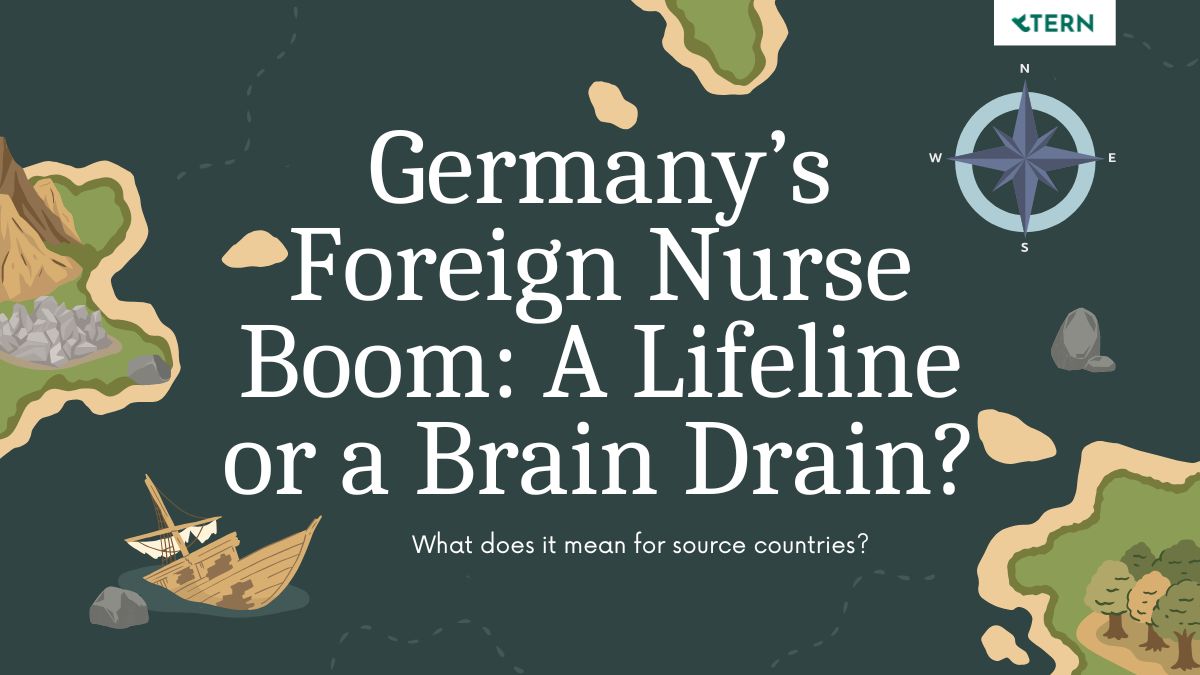
Germany’s healthcare system is at a crossroads. The question arises, lifeline or brain drain? An ageing population, coupled with a persistent shortage of skilled healthcare workers, has pushed the country to rethink its approach to labor migration. With projections estimating a need for 400,000 net immigrants annually to maintain a stable workforce until 2060, Germany is doubling down on recruiting foreign nurses and care workers through streamlined visas, fast-tracked language programs, and bilateral agreements. But while these policies aim to address domestic shortages, they raise critical questions about their impact on source countries like India, Morocco, and the Philippines. What does it really signify for these source countries? Here’s a deep dive into Germany’s healthcare policy shift and its ripple effects abroad.
Germany’s Healthcare Crisis and the Push for Foreign Talent
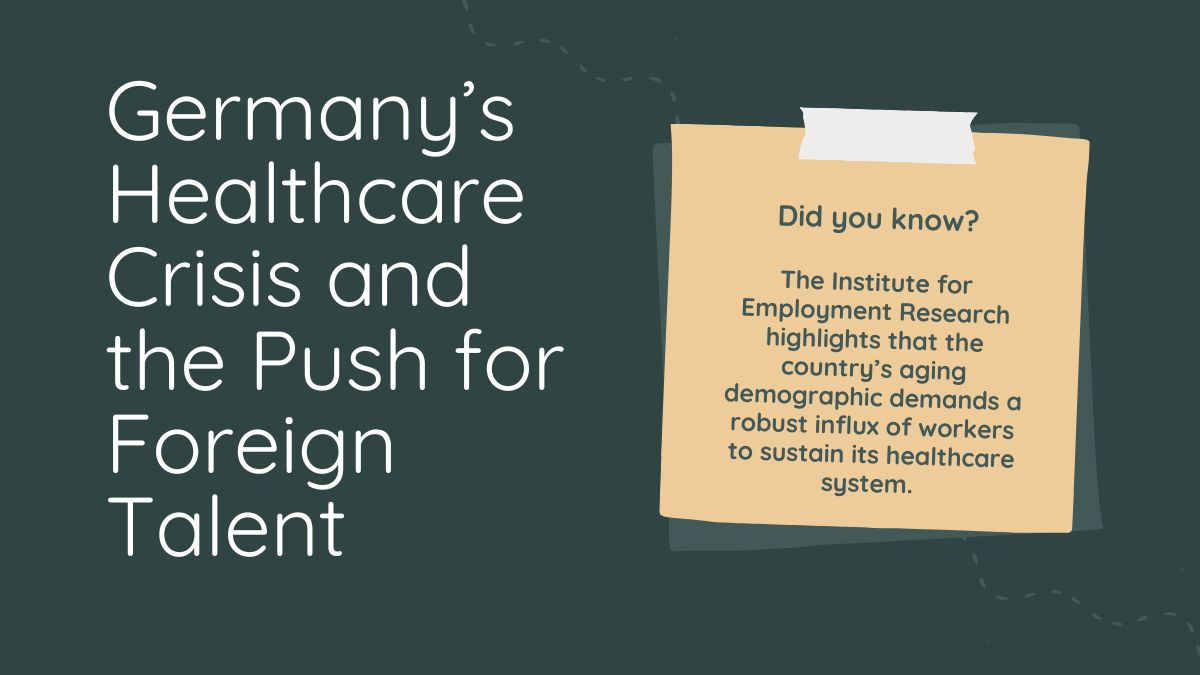
Germany’s healthcare sector is grappling with a structural labor shortage. The Institute for Employment Research highlights that the country’s aging demographic demands a robust influx of workers to sustain its healthcare system. To address this, Germany has introduced policies like the Skilled Immigration Act, which eases entry for non-EU professionals. Key measures include:
- Fast-Track Visas: The fast-track procedure under Section 81a of the Residence Act allows employers to expedite visa processing for skilled workers, including nurses, for a fee of €411. This process ensures quicker recognition of foreign qualifications, with decisions on equivalence made within two months.
- Language Programs: Language skills are no longer a mandatory visa requirement for some roles, though proficiency in German remains critical for healthcare workers. To bridge this gap, Germany has rolled out fast-tracked language training programs, often in collaboration with source countries, to prepare nurses for integration into the workforce.
- Bilateral Agreements: Germany has signed placement agreements with countries like India (Kerala), Morocco, and the Philippines to recruit healthcare professionals. These agreements, facilitated by the Federal Employment Agency and GIZ’s Triple Win program, ensure structured, ethical recruitment while adhering to labor standards.
These initiatives reflect Germany’s ambition to transform into a modern immigration country, as articulated by its coalition government. The appointment of a Special Commissioner for Migration Agreements underscores the focus on partnerships with countries of origin to meet labor demands while addressing issues like return migration.
The Impact on Source Countries: India, Morocco, and the Philippines
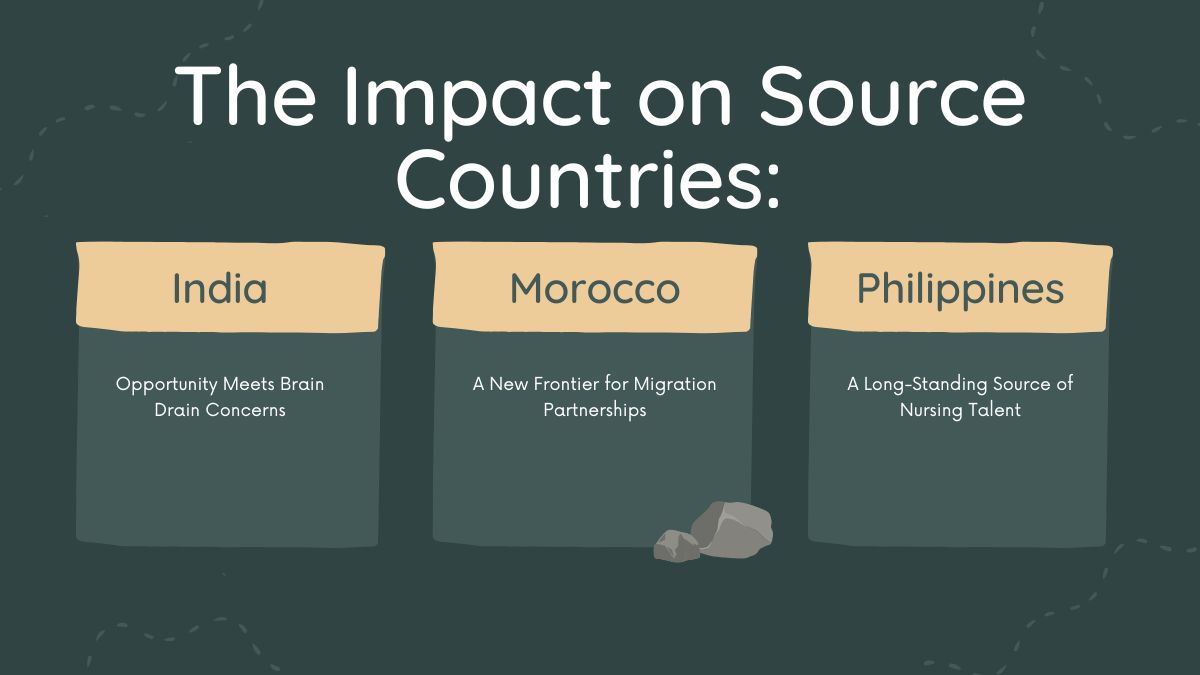
Germany’s recruitment drive offers opportunities but also poses challenges for source countries. Below, we explore the implications for India, Morocco, and the Philippines, three key partners in Germany’s healthcare migration strategy.
India: Opportunity Meets Brain Drain Concerns
India, particularly Kerala, has been a focal point for Germany’s recruitment efforts, with a placement agreement in place since December 2021. Indian nurses are highly sought after due to their training and adaptability, and Germany’s streamlined visa processes and language programs have made migration more accessible. For Indian nurses, this means better wages, improved working conditions, and a pathway to long-term residency—Germany now offers settlement permits after just three years for skilled workers.
However, the migration of skilled nurses raises concerns about brain drain. India’s healthcare system, already stretched in rural areas, could face further strain as trained professionals leave. The WHO and OECD emphasize ethical recruitment to mitigate this, and Germany’s Triple Win program aims to balance benefits for both countries by ensuring sustainable migration practices. Still, India must weigh the economic benefits of remittances against the loss of healthcare talent.
Morocco: A New Frontier for Migration Partnerships
Morocco’s agreement with Germany, effective from July 2023, targets sectors like construction and electrical work but also opens doors for healthcare professionals. Morocco’s proximity to Europe and its growing pool of trained nurses make it an attractive partner. Germany’s informal memoranda of understanding with Morocco focus on practical cooperation, including language training and qualification recognition.
For Morocco, this partnership offers economic opportunities, as migrant workers send remittances that bolster local economies. However, the departure of skilled nurses could exacerbate Morocco’s own healthcare shortages, particularly in underserved regions. The challenge lies in ensuring that migration agreements include provisions for capacity building, such as training programs to replenish the local workforce.
The Philippines: A Long-Standing Source of Nursing Talent
The Philippines has a well-established history of supplying nurses globally, with a placement agreement with Germany dating back to 2013. Filipino nurses are valued for their English proficiency and rigorous training, and Germany’s fast-track visas and language programs have made it easier for them to integrate. The Triple Win program has been particularly effective here, placing thousands of Filipino nurses in German hospitals while ensuring fair labor conditions.
Yet, the Philippines faces significant brain drain. The country’s healthcare system struggles to retain talent, as nurses are lured by higher salaries abroad. While remittances are a major economic driver, the loss of skilled professionals strains local hospitals, particularly in rural areas. Germany’s bilateral agreements aim to address this by promoting sustainable migration, but the long-term impact depends on investments in the Philippines’ healthcare training infrastructure.
Challenges and Ethical Considerations
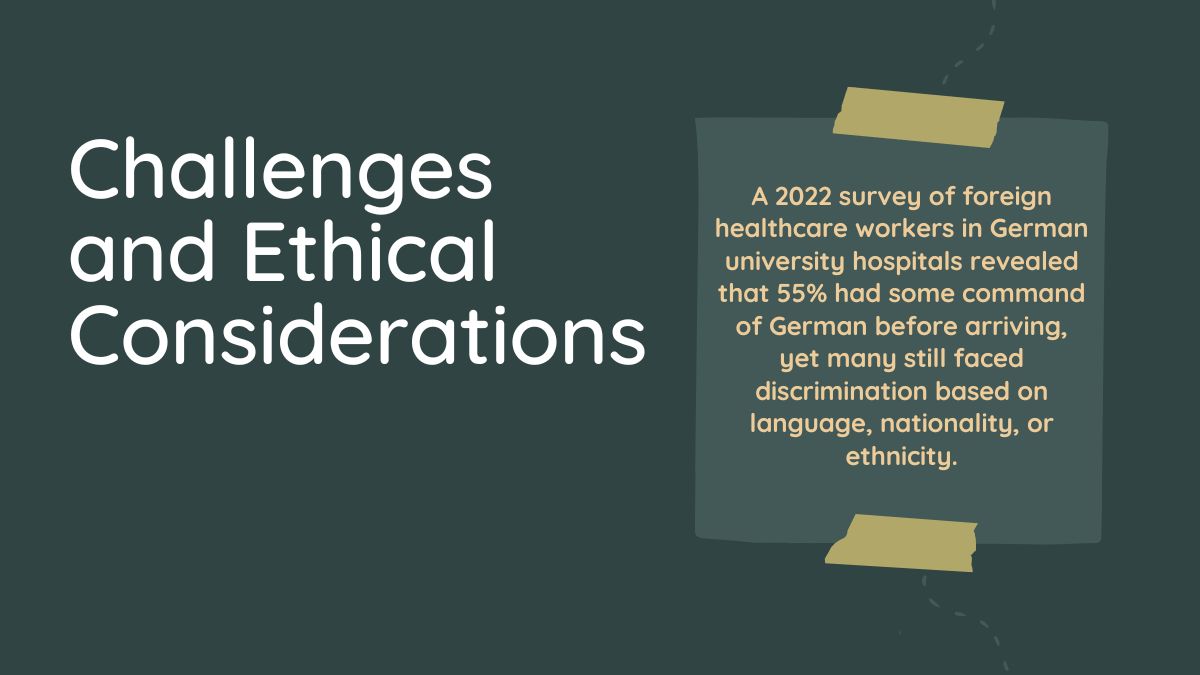
Germany’s policies are not without criticism. The rush to sign multiple bilateral agreements before the next federal election risks prioritizing quantity over quality, potentially limiting their practical impact. Additionally, a 2022 survey of foreign healthcare workers in German university hospitals revealed that 55% had some command of German before arriving, yet many still faced discrimination based on language, nationality, or ethnicity. This highlights the need for better workplace integration strategies to ensure migrant workers feel valued.
For source countries, the risk of brain drain is a recurring concern. The WHO’s Global Code of Practice on International Recruitment emphasizes safeguarding health systems in developing nations, and Germany’s agreements strive to align with this. However, without robust measures to train and retain healthcare workers locally, countries like India, Morocco, and the Philippines may struggle to meet their own needs.
What’s Next for Germany and Its Partners?

Germany’s bet on foreign nurses is a pragmatic response to its demographic and labor challenges. By streamlining visas, offering language training, and forging bilateral agreements, the country is positioning itself as a leader in ethical labor migration. For India, Morocco, and the Philippines, these policies offer economic opportunities but demand careful management to mitigate brain drain.
To make this a true win-win, Germany must deepen its partnerships by investing in training programs in source countries, ensuring that migration does not deplete local healthcare systems. Meanwhile, source countries should leverage remittances and diaspora networks to build stronger healthcare infrastructures. The success of this model hinges on collaboration, transparency, and a commitment to ethical recruitment—principles that will shape the future of global healthcare migration.
TERN: Bridging the Global Healthcare Talent Gap
As Germany enters a new era of ethical labour migration, TERN enables healthcare systems to access high-quality, pre-qualified talent—while supporting nurses from underserved regions in building better futures abroad.
Whether you're a healthcare professional looking to work in Germany, or a hospital seeking skilled staff, TERN’s AI-powered recruitment and end-to-end support ensures ethical, efficient, and sustainable migration for all.
Ready to take the first step?
- Contact us on WhatsApp: Message us here to start your journey.
- Sign up on our platform: Visit our AI-powered platform to create your profile and explore opportunities.
- Fill out our form: Apply now by filling your details here!
Want to join the TERN team? Check out our listed jobs here. Whatever it is, don’t wait—your dream career is within reach with TERN. Join thousands of others in building a brighter future in global healthcare.

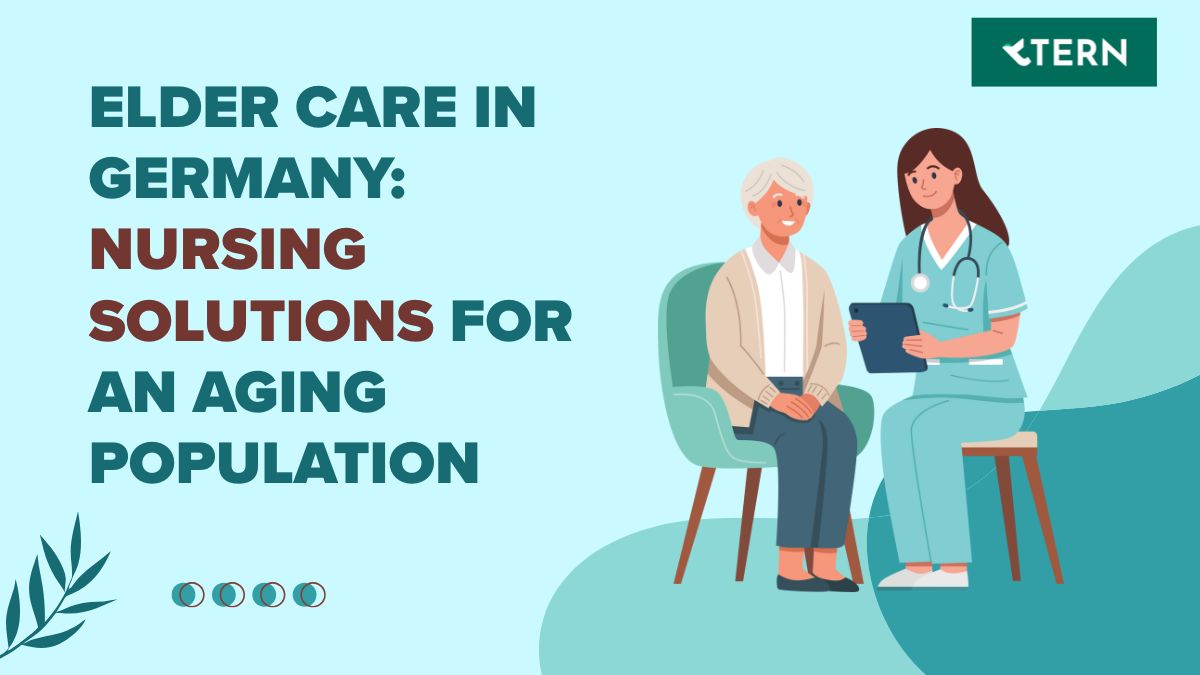
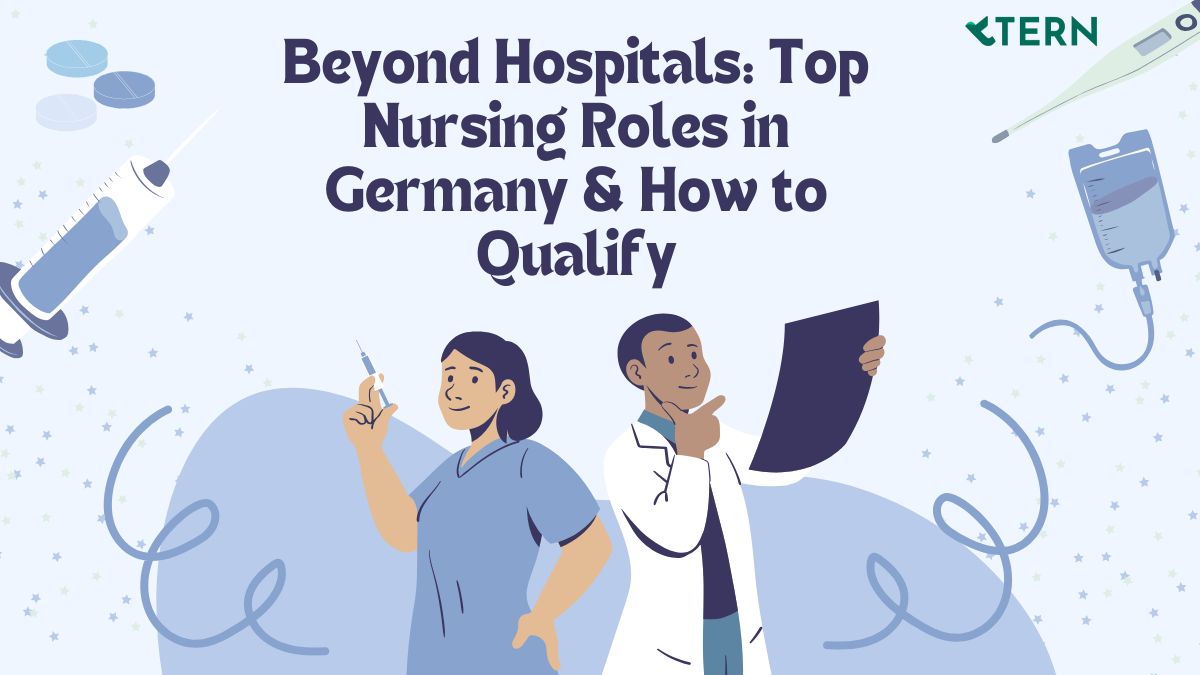
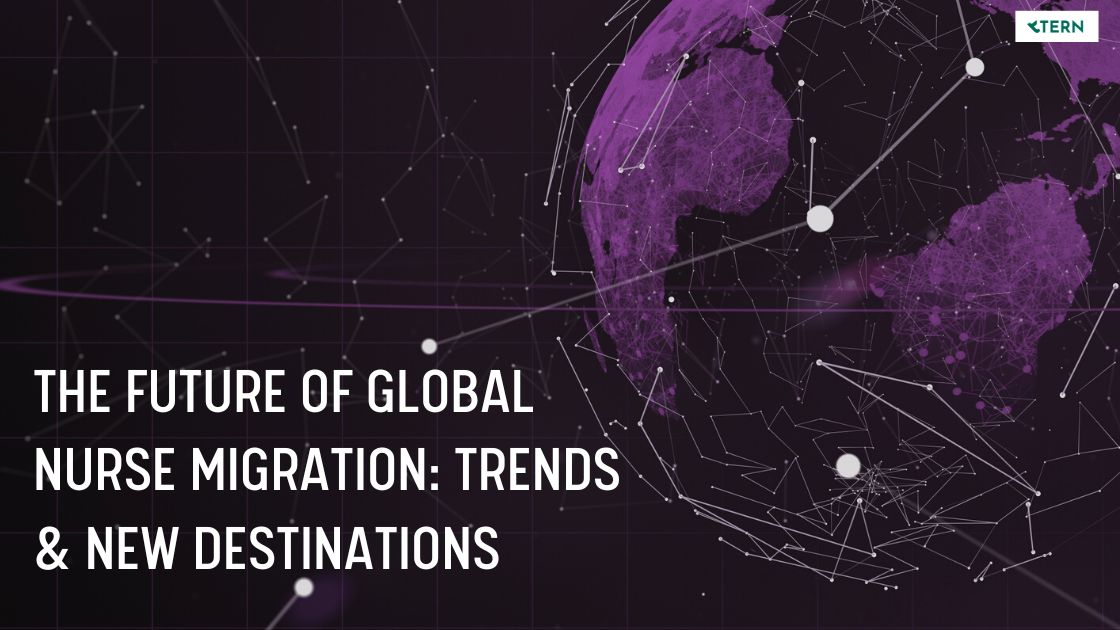

%20(1200%20x%20630%20px)_page-0001.jpg)

